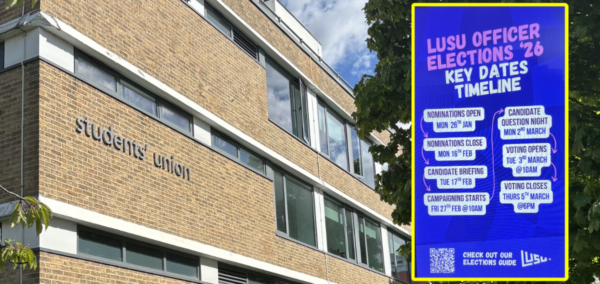
Here are seven ways to prepare yourself for deadline season as an Exeter Uni student
A reminder that self care is more important than any essay
Deadline season has appeared in a blink of an eye this year. It can be so easy to become overwhelmed by how much work there is to do: Between revising for exams, finishing summatives, applying for placements or preparing for years abroad, it feels like there aren’t enough hours in the day to get everything done.
I have compiled a list of some of my top tips for how to survive this busy and stressful period. I am an English student so some of these tips are more humanities based, but I hope you can still take something away!
So, how exactly will you thrive – and not just survive – this exam season?
1. Start the work earlier than necessary

We have all been told this hundreds of times, but it’s honestly so true. Even if you read one article a day, doing big pieces of coursework over a few weeks is honestly so worth it. For me, I find that I need time to let my ideas marinade for about a week before I even begin my first draft, so building in time to do this is always a priority for me.
Most Read
Also, leaving a weekend in between finishing writing and editing is useful in allowing you to come back with fresh eyes and ready to perfect the piece. I have sometimes found a new idea that I am desperate to explore more, but simply have not left myself enough time to make any major changes. I usually try to give myself four weeks – one for planning, one for research, one for writing and one for polishing. Doing the work bit by bit makes it a bit easier to have multiple essays on the go at once.
2. Study by yourself

I know there is such a temptation to go to the library or a cute coffee shop with your friends to “do work together”, but let’s be honest, more yapping than writing always gets done. Taking yourself on a coffee date with your laptop can be so empowering and I find you actually get far more work done. This can seem really scary, but I promise, absolutely no one is giving you a second thought and you will be so productive.
Some of my favourite cafes to study alone in are Zuki’s, The Devon Coffee House, Artigiano’s, Waterstones and Boston Tea Party though remember to do this in the week as most places are busy on the weekend. Also, important to note that not all cafes are super laptop friendly so respect their rules (The Tiny Tasting Room and The Undergrad notoriously).
3. Leave the house every single day

I honestly cannot stress this point strongly enough but getting dressed and leaving the house every day is so important for your mental health. Even if you are really productive at home, I still think going out every day is so worthwhile. Even if all you do is go for a coffee, go to the gym, do a food shop, or go for a walk, getting some fresh air and sunlight and time away from your desk will really help to regulate your mood and prevent burnout. With the weather improving, there is no better feeling than just being out in the sunshine.
4. Make time for socialising, but also respect that people are busy

I think making a real effort to see your friends before Easter is very important and we should not be getting so bogged down in essays that we no longer have time to see our friends. That being said, I am a huge believer in respecting that everyone’s relationship with their degree is different and people wanting to prioritise their work is absolutely okay.
I find that studying with people, meeting up in the day, or going to the pub instead of clubbing are really good options for this time of year because it allows for people to socialise without sacrificing sleep. I would also say that when with your friends, try to not overly discuss your deadlines or how stressed you are. As good as it is to communicate your feelings, talking about stressful things can in turn stress out other people. Remember: everyone copes with stress differently!
5. Make sure you maintain a good routine

I’m sure this is one we have all been told, but going to bed and waking up at similar times every day has so many benefits. Having a solid routine really does help with sleep quality and can make it easier to wake up. Having a good morning routine really starts off the day on the right foot. This might be waking up 10 minutes earlier to make the morning a bit less stressful or listening to uplifting music while you get ready.
To set my routine, I found the morning where I would have to wake up the earliest (8:00 for my 9:30) and then wake up this time all week. Weekends you can sleep a bit longer, but you might find that you will naturally wake up at the same time. If you struggle to get proper sleep, investing in ear plugs can be a good idea and there are some free ones provided just outside the Forum library. Taking magnesium glycinate an hour before bed also helps to relax muscles and taking magnesium also aids with the absorption of vitamin D.
6. Bring your own lunch to campus

I don’t feel like it’s my place to tell people what they should be eating because everyone’s version of eating healthily is so different. In my opinion, the least healthy lunch option would be not eating lunch at all. All I can say is that if you are going to study on campus, bring your own lunch. Not only will this save you money, but it also allows you to pack something more satisfying than a soggy marketplace sandwich. It will also force you to stay on campus longer since you don’t have the excuse of wanting to make lunch at home.
Some of my favourite things to bring for lunch are tuna and sweetcorn pasta, falafel and humous wraps, ham and cheese bagels, and chicken and tzatziki pittas. I try to prep my lunch the night before, so it is ready to just grab and take with me in the morning. I also always carry a variety of snacks with me to stop the sweet treat trips!
7. No essay is ever that deep

I feel like it is very important to add that though all summatives and exams are really important and do require a good amount of time, effort and attention, no piece of work should be having a detrimental impact on your mental health, sleep, or relationships.
If you have an ILP, it isn’t too difficult to get a two-week extension on your work or even mitigate it if you need to. If you don’t have an ILP, talking to your seminar leader, module convener, personal tutor, GP, wellbeing staff or even the welfare secretary from your subject’s society can be really helpful. If you think having an ILP would be beneficial, it is never too late to contact [email protected] to set up a meeting.
There are so many people on campus whose job it is to help you so do try and reach out if things are getting too much. This will not apply in all cases, but I do always feel less stressed about my work when I just start writing. Even if you set a timer for ten minutes and write, just getting something down should help to quell a bit of that anxiety.


















